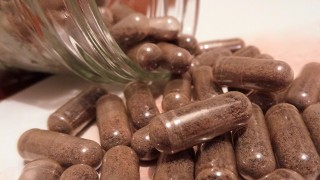
The misconception of placenta eating after birth has finally, and thankfully, been laid to rest. Two researchers, Cynthia Coyle and Dr. Crystal T. Clark, embarked on a path to determine if there were true benefits of new mothers consuming their placenta. This “ew” worthy trend began to spike after celebrities, like Kim Kardashian, touted health benefits if one did so. Could it truly help postpartum depression, boost energy, assist lactation and even help bond with baby?
The trend medically known as placentophagy is more illusion than truth confirms the researchers.
While they point no fault to this celebrity-inspired trend, they are putting a medical and scientific cap on ending this tradition which has no real benefits. Many mothers consume parts of their placenta either raw or cooked. The researchers said eating unknown items like the placenta can raise for mothers “potential risks to themselves and their nursing infants.” Coyle said there are no regulations, and no medically specific ways to store a placenta or prepare it, making the handling “inconsistent.”
The researchers said their study showed an increased risk, but no benefits for mothers when ingesting the placenta. They hope mothers will connect to their doctors to address post-birth concerns.
Many mothers are led to believe there are enriched levels of nutrients in the placenta for consumption. The researchers shared their concern on these wide-spread beliefs. Coyle said in their research they uncovered only one study, out of 10, that noted an inflammation reduction when a placenta is eaten immediately after birth “in its entirety, and that it couldn’t be stored or heated. That’s not what human women are doing.” The practice in the animal kingdom is a popular one, but that is comparing apples to oranges, Coyle suggests.
The placenta, the researchers state, harbors toxins absorbed by the baby which continues to emphasize the concern when it comes to this trendy tradition. Many mothers do not turn to their doctors regarding the practice which may pose dangers.
Clark told CBS, “Bacteria and elements such as mercury and lead have been identified in the post-term placenta, so if the theory is that we retain nutrients and hormones such as estrogen and iron that could be beneficial, then the question becomes what harmful substances can also be retained that could harm the mother or the baby if she is breastfeeding.”
Dr. Clark received the question of health benefits of placentophagy after patients inquired her of it. She is a professor of behavioral science at Northwestern University and a psychiatrist specializing in reproduction related mood disorders.
The study can be read in its entirety here.
